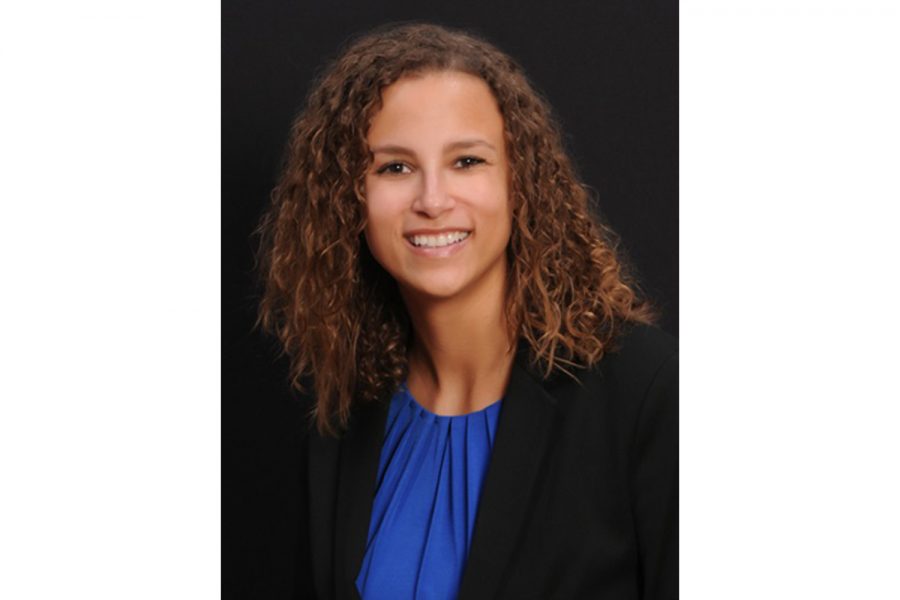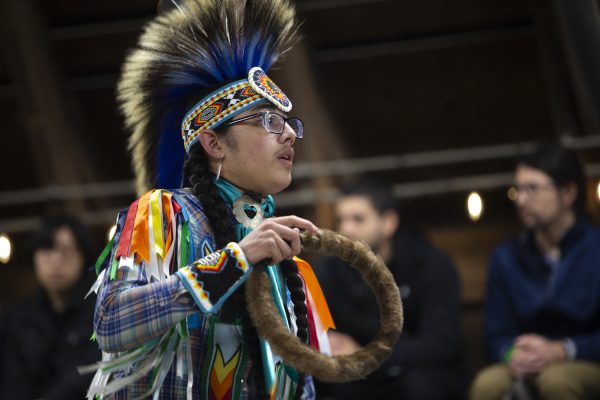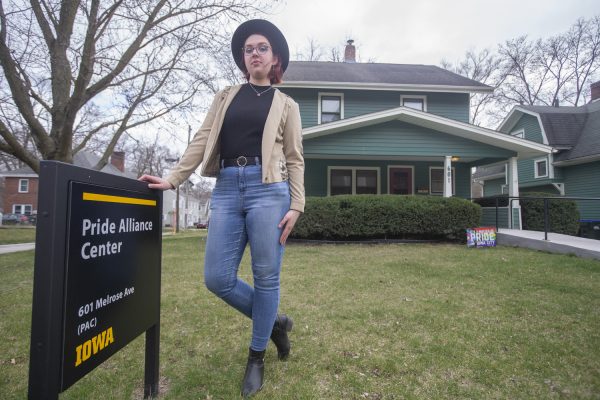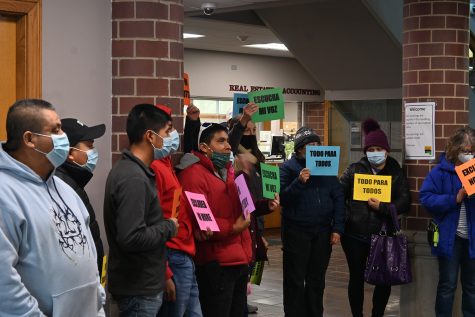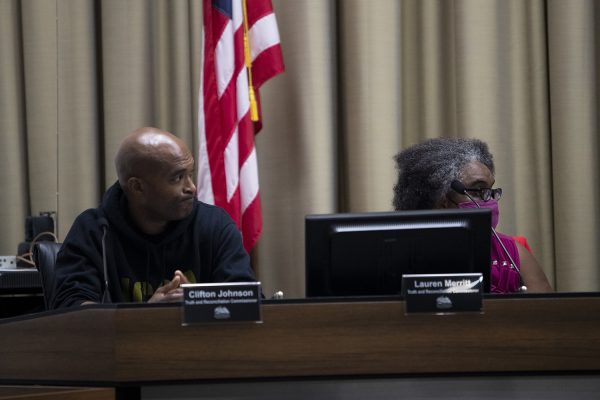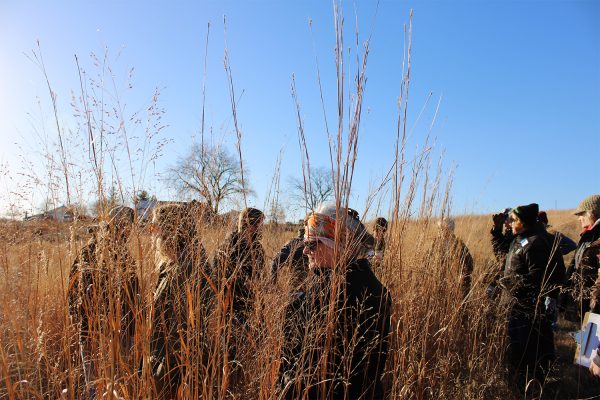UI Law alumni create nonprofit to educate the community on Fourth Amendment rights
UI Law alumni use their class Street Law to teach high school students about their Fourth Amendment rights.
March 24, 2021
Crystal Pound and Alex Lodge, both University of Iowa alum, have built on their efforts to inform the community on their rights protected by the Fourth Amendment — which prohibits unreasonable searches and seizures — by bringing that education into classrooms across the state.
Pound and Lodge recently earned a nonprofit status for their organization, Justice101, which partners with Iowa schools to teach young people about the Fourth Amendment. The curriculum educates young people on their rights when interacting with police, and what law enforcement legally can and can’t do. Its goal is to alleviate anxieties of young people when interacting with the police, especially for students of color.
Justice101 is an extension of the Iowa chapter of Street Law, a class on Fourth Amendment rights that Pound and Lodge brought to Iowa following the killing of Michael Brown in Ferguson, Missouri. The first class was taught at City High in March 2016.
Pound, a co-collaborator of Justice101, practices law in Cedar Rapids. Pound helped found Street Law and Justice101 during her time at UI Law School, which she graduated from in 2016.
Pound said that Justice101 aims to create an equal interaction between police and citizens by informing the community of their rights when they encounter police.
“I think games are only fair when everyone knows what the rules are,” Pound said. “One goal is to educate the students so that when they come into contact with law enforcement, they know what’s allowed and what’s not allowed and if something happens that isn’t allowed, they know how to advocate for themselves later with their legal counsel.”
A 2016 graduate and current patent attorney, Lodge said he goal of Justice101 is to educate the community, especially Black residents, on how complicated the law is and how to be protected during police interactions, Lodge said.
“It was apparent that we were experiencing a disproportionate amount of police contact particularly with not only Black students at UI but Black residents in the city of Iowa City,” Lodge said. “Justice101 is continuing that effort and continuing to provide a resource to the community with respect to educating our community about Fourth Amendment rights.”
RELATED: In Focus | Iowa police body camera video sometimes revealing — if the public is allowed to see it
In Iowa, Black residents are much more likely than white residents to face use of force by state police officers. Although Black residents make up about 4 percent of Iowa’s population, 24 percent of use of force incidents were reported against Black people by officers in the Iowa Department of Public Safety in 2018 and 2019.
Prior to the COVID-19 pandemic, Justice101 presented its Street Law class to students at City High School in Iowa City, and Metro High School in Cedar Rapids, Iowa. Now, the founders are working to create virtual classes to continue their work in an online format.
Alex Lodge is a patent attorney who graduated from the College of Law in 2016. Lodge is a co-founder of the Street Law program and a co-collaborator of Justice101. The goal of Justice101 is to educate the community, especially Black residents, on how complicated the law is and how to be protected during police interactions, Lodge said.
“It was apparent that we were experiencing a disproportionate amount of police contact particularly with not only Black students at UI but Black residents in the city of Iowa City,” Lodge said. “Justice 101 is continuing that effort and continuing to provide a resource to the community with respect to educating our community about Fourth Amendment rights.”
Lodge said the best way to support Justice101 is to donate through the organization’s website and spread the word about the program.
“If you are in the education system or you work with vulnerable populations, particularly those who might be at risk of having a Fourth Amendment rights violation, please feel free to contact Justice101 to get the program to come out to talk to your community members,” he said.
Brian Farrell, a UI College of Law lecturer, and Justice101 board member, said that the pandemic has brought forth the biggest challenges for the organization.
“I think the pandemic has thrown a wrench into the efforts to take the curriculum and the model that had already been developed and re-establish and expand it,” Farrell said. “The idea of virtual delivery creates opportunities to allow it to not be geographically restricted, but at the same time potentially create some initial barriers, just in terms of the resources to get up and going.”
Farrell said that Justice101 is valuable because it teaches students about the Fourth Amendment in an interactive and informal way that creates meaningful connections in the community.
Justice101 provides students with an in-depth explanation of their rights when interacting with law enforcement that is often not taught elsewhere, Farrell said.
“I don’t think our civic education gets into practical aspects,” Farrell said. “I’m guessing that in most cases they haven’t ever thought about or talked about how that plays out in a practical sense until perhaps they’re in a situation where they are confronted with some restriction or a challenge to their rights.”



